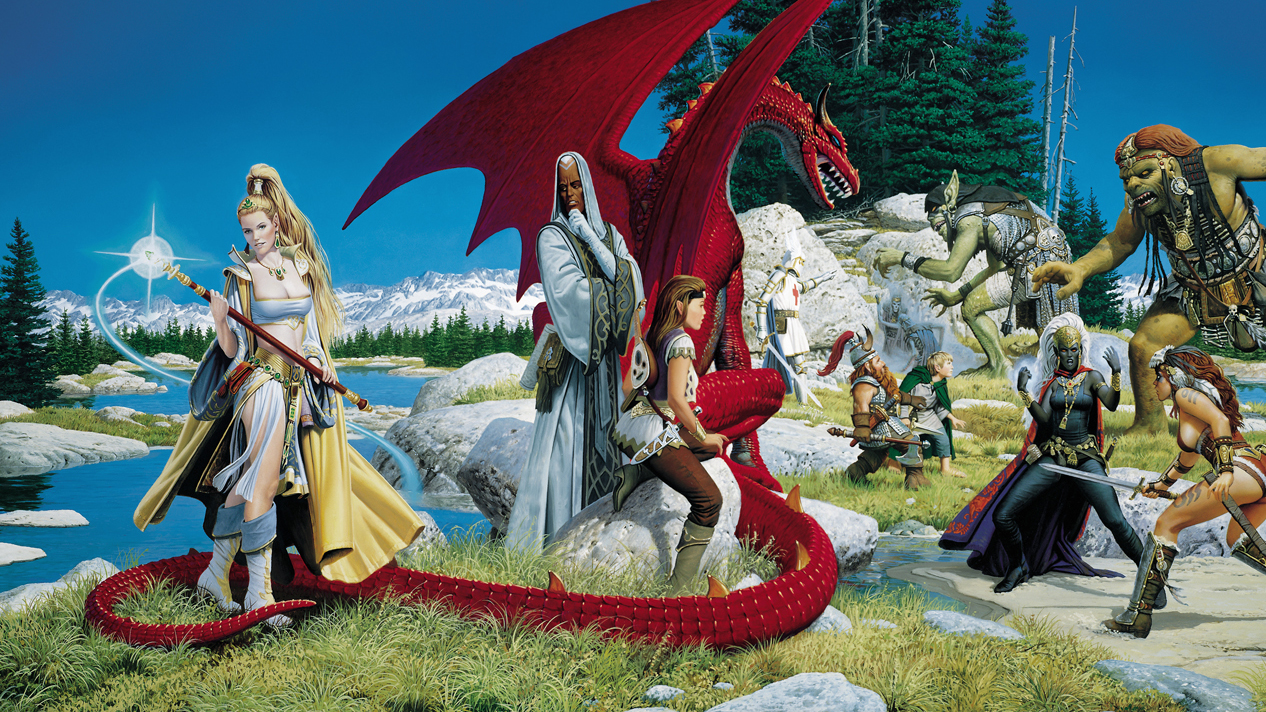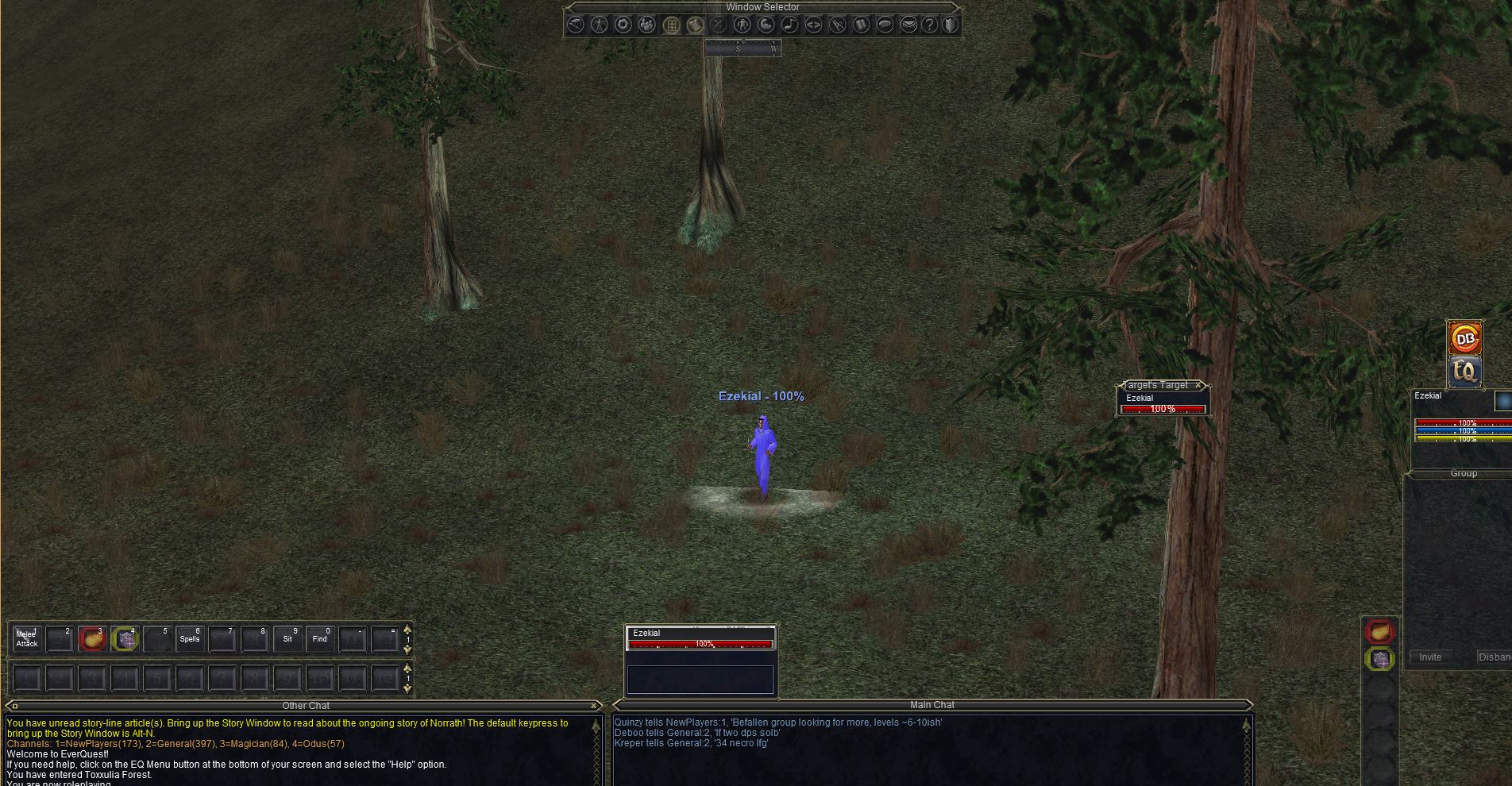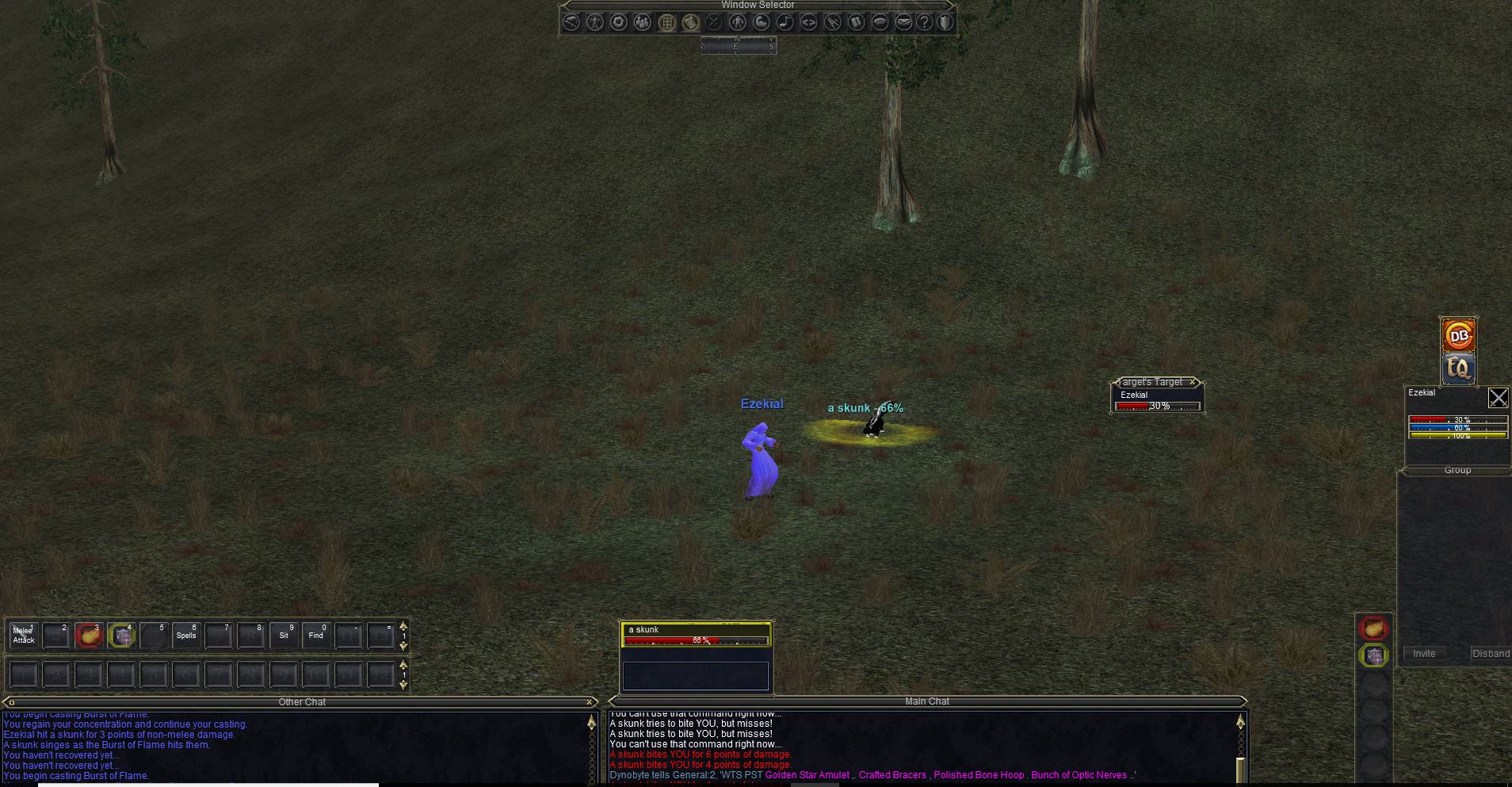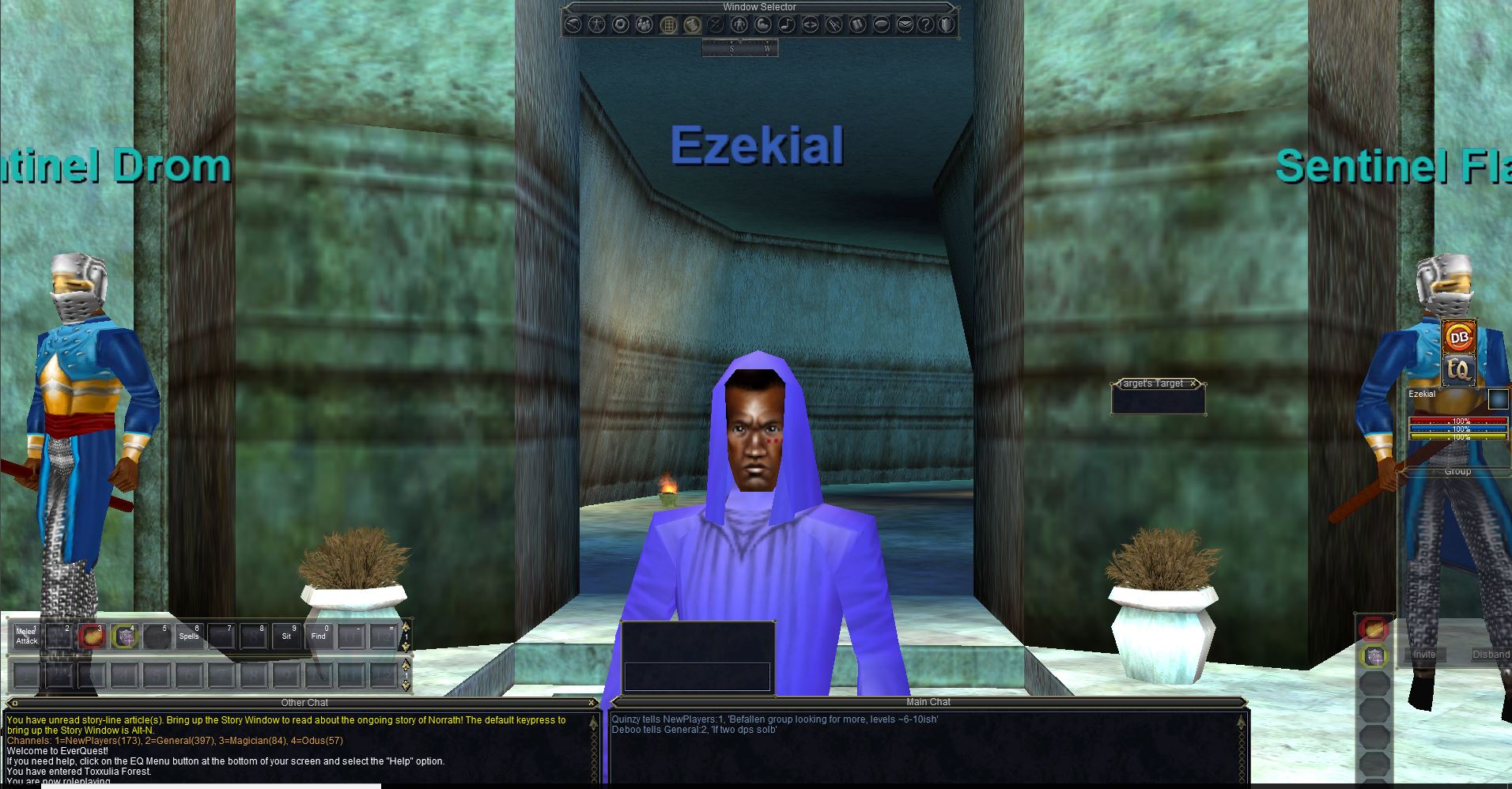The original EverQuest is so unhelpful and severe that it almost feels modern
What it's like to play vintage EverQuest in 2018.

I spent my first half-hour in a vintage, vanilla EverQuest server running around in circles. From what I gleaned from the fine-print lore at the character select screen, I playing as an Erudite—a race of narrow-faced magicians who spent most of their time in the dusty libraries around Norrath. My newly-birthed character spawned in with no fanfare in a tiny alcove high atop an alabaster palace, staring down a vendor, a guildmaster, and a mentor in the arcane arts. I exited through the backdoor with absolutely no idea what to do next.
I have met a number of videogame cities in my life, but I've never encountered one more cheerfully unnavigable than Erudin. As my poor mage opened up every door, he stumbled into auction houses, and banks, and dead ends. He jumped up and down in the static crystal fountains. He desperately double-clicked every NPC he could find in a faint hope of uncovering a quest, or at least a thread leading to one. Eventually I alt-tabbed out, found a genial YouTube video, and discovered a crystal platform that teleported me outside. "Oh, so this is the EverQuest I've heard so much about," I thought.

Everything old is new again
In late March, Daybreak Games unlocked a new EverQuest "progression server" called Coirnav for people willing to plunk down the 15 dollars a month for access. You can, of course, play EverQuest for free—the game is still available, and still seeing regular expansions and content updates, nearly two decades after its release. But Coirnav teleports the player to the scrubbed, out-of-the-box version of EverQuest that existed in 1999.
I am a child of World of Warcraft. It is, and will remain, my favorite game of all time. But I've always nursed a curiosity about EverQuest—the foundational MMO that proved the business model could work, before Blizzard showed up and permanently stole its thunder. The reasons for this are both personal and metaphysical: in 2018 it feels like every other game in the industry, even stuff like Assassin's Creed and Shadow of War, can be technically classified as an MMO, and I wanted to go back to the beginning, when the internet was more remote, when you linked up to Norrath with a dial-up modem.
Sure enough, the EverQuest I found was downright radical—the exact sort of MMO you'd expect before the template for this sort of game design existed, when it was still based directly on MUDs.

EverQuest gives you no real direction or means of orientation.
When you load into World of Warcraft you're presented with a short in-engine cutscene contextualizing the purpose and spirit of your chosen race. The sun rises on your character in a small camp a stone's throw outside of the capital city, face to face with a man with a yellow exclamation mark hovering over his head. The Dungeon Finder app in your UI will transport you to any instance on the globe with the click of a button, Looking For Raid will let you take down Kil'Jaeden with you and 19 other randoms, and in 2018, almost every zone in the game scales to your level.
This is not the way Daybreak (formerly Sony Online Entertainment) goes about its business. Instead, you are a citizen of Norrath, and your destiny is your own. I'm not sure how the modern EverQuest plays today, but on the progression server there is absolutely no hand-holding. You venture out into the world to grind on endless kobolds, dodging the occasional skeletons that will smite you in one hit. There are so many audacious little wrinkles! Your character's level is kept hidden from you, so instead you size up enemy NPCs by 'inspecting' them, which will give you a color-coded prompt in your text box informing you how much of a chance you have in a solo encounter.
The biggest gaming news, reviews and hardware deals
Keep up to date with the most important stories and the best deals, as picked by the PC Gamer team.
The combat itself is also surprisingly demanding. You will absolutely end up in a long, long duel with a snake or a rat that will make you question your stamina. (Which you better win, because your gear is dropped upon death.) Also, as if it wasn't clear from my half-hour lost in the Erudite starting zone, EverQuest gives you no real direction or means of orientation. Quests are remote and out of the way, so you scout out the realm of Norrath by running away from bigger bad guys, slowly constructing a mental map of hazards and refuges.
There is a chance that all this is bad game design. It certainly runs counter to the instincts honed from a life spent in Azeroth. However, I can't help be captivated by the sheer recklessness of EverQuest. In a way, it feels modern.

It's hard to think of a triple-A game that hasn't been saddled with a long, doting tutorial, extremely forgiving respawns, or hell, a microtransaction functionality to skip all the grinding. But in the past couple of years, that pendulum has swung the other way. Look at Monster Hunter and Yakuza—both deeply abstruse franchises that have also somehow produced two of the most hyped game of 2018. Look at Dark Souls and Bloodborne, which proved that there was still a market for failure and frustration, and teasing players with only the faintest hints and implications.
That's essentially the same thing EverQuest was doing back in 1999, although obviously back then its opacity wasn't a response to a recently emerging trend. Clearly, people are feeling that call, when you consider that we're in the midst of a mini-boom of hardcore MMOs with Chronicles of Elyria, Pantheon: Rise of the Fallen, and Camelot Unchained. Studios around the world are remembering the enchantment that can only be created through authentic discovery.
I'm glad I gave EverQuest a shot, and I'm glad that this world can exist with all its thorniness intact. I used to laugh at the grognards that bemoaned World of Warcraft for the olive branch it offered to casual audiences. For the first time ever, I can kinda see their point.

Luke Winkie is a freelance journalist and contributor to many publications, including PC Gamer, The New York Times, Gawker, Slate, and Mel Magazine. In between bouts of writing about Hearthstone, World of Warcraft and Twitch culture here on PC Gamer, Luke also publishes the newsletter On Posting. As a self-described "chronic poster," Luke has "spent hours deep-scrolling through surreptitious Likes tabs to uncover the root of intra-publication beef and broken down quote-tweet animosity like it’s Super Bowl tape." When he graduated from journalism school, he had no idea how bad it was going to get.

